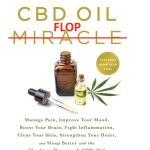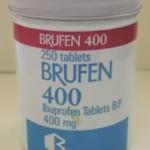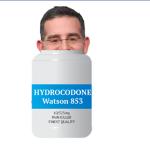Watch our latest video!
pain
Join Cameron English and Dr. Chuck Dinerstein on Episode 88 of the Science Dispatch podcast as they discuss:
Just what pain patients didn't need: Another useless substitute for real pain medication.
Open a random medicine cabinet, and there's a very good chance you'll see a bottle of ibuprofen.
Join host Cameron English as he sits down Dr. Josh Bloom to break down these stories on Episode 36 of the Science Dispatch podcast:
#These comments have been officially submitted to the Federal Register.
I have been writing about the now disastrous consequences of withholding opioid pain medications from pain patients with legitimate needs since 2013 – well before most other organizations.
JB: Dr. Kolodny, I can't possibly express how grateful I am that you agreed to do another interview for me, ACSH, and your many pain patient fans out there.
Perhaps other than virologists, few people would have predicted that a tiny microbe would dominate global headlines for several months in 2020. It goes without saying that the coronavirus has kept us quite busy.










